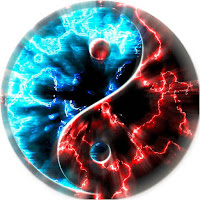Do we provide a proper and
appropriate education for our children?
My girls are in college, have decided on the initial direction of their
lives and are starting to focus on their futures. Am I too late to start having these types of
thoughts?
Gab was a good student, she
went to school and worked hard to achieve good grades in preparation for
college. Bec, while also a good student,
always questioned why she had to learn the things that made no sense, would not
have benefit on her future and wasted her time.
This was true for secular and religious education, with religious being
harder to explain to her, as the time was limited, and the curriculum a bit
repetitive. Yes, each new High School
year started with a couple of weeks review.
Hebrew School had the same holidays to review each year. I am now at a
point, with one child ready to graduate college and the other half way through
her higher educational time period, to evaluate what we put our children
through. As Andy Andrews says, “The goal is not to raise great kids. It's to raise kids who become great adults.” Based on those two
sentences, as parents, we need to ensure that what our children learn and
experience provides them with the appropriate tools for the future.
Hut, Hut,
Hike! I feel like a Monday morning
quarterback, recapping the big game including the would have dones, the should
have dones and the overall better strategies.
My girls have turned out GREAT, so I cannot (and will not)
complain. But, can we tweak the
experience for the next generation?
Yes. As always, change is
difficult, but sometimes, we fall into the routine of maintaining the status
quo. I was recently given the
explanation that we only have a set amount of time, so there are some things we
have to sacrifice to teach other things.
What if they are the wrong things and who makes those decisions? If the expected results were not reached,
they were not correct. As a project
manager, one of the things we do after a project, is to evaluate the project,
talk with our customers to see what their experience was like, and review our
outcomes. I could say, we finished and
delivered what we said, but that is only part of the story. To borrow a line from Paul Harvey, “…the rest
of the story…” is what can make the difference to future projects, provide
proper expectations, help teams pull together and enhance user experiences.
As adults, in any endeavor we
undertake, we consider the results we want, what we have to do to get the
results and track our progress on obtaining those results. We need to be as diligent with our children’s
education. Many of us move to a town with a good school (or send to private) and
send them to the religious school that is part of the institution we belong to;
this, however, is done with broader strokes.
I remember going to Hebrew School and spending a significant amount of
time watching filmstrips (I am dating myself) and the occasional spitball
zipping through the air. Okay, I can
read Hebrew, but I never learned to translate nor to talk the language. Minus the filmstrips (and hopefully the spitballs),
plus some different experiences, both girls can read Hebrew, but they never
learned to translate nor to talk the language.
They have had a similar experience to what I had. If you ask them what they should have
learned, they can tell you versus what they did not.
While we provide a home that
values a strong education, we must also understand the curriculum for our
children. Education is always a hot
topic, but we cannot always rely on a “what was good for me is good for you”
attitude.





